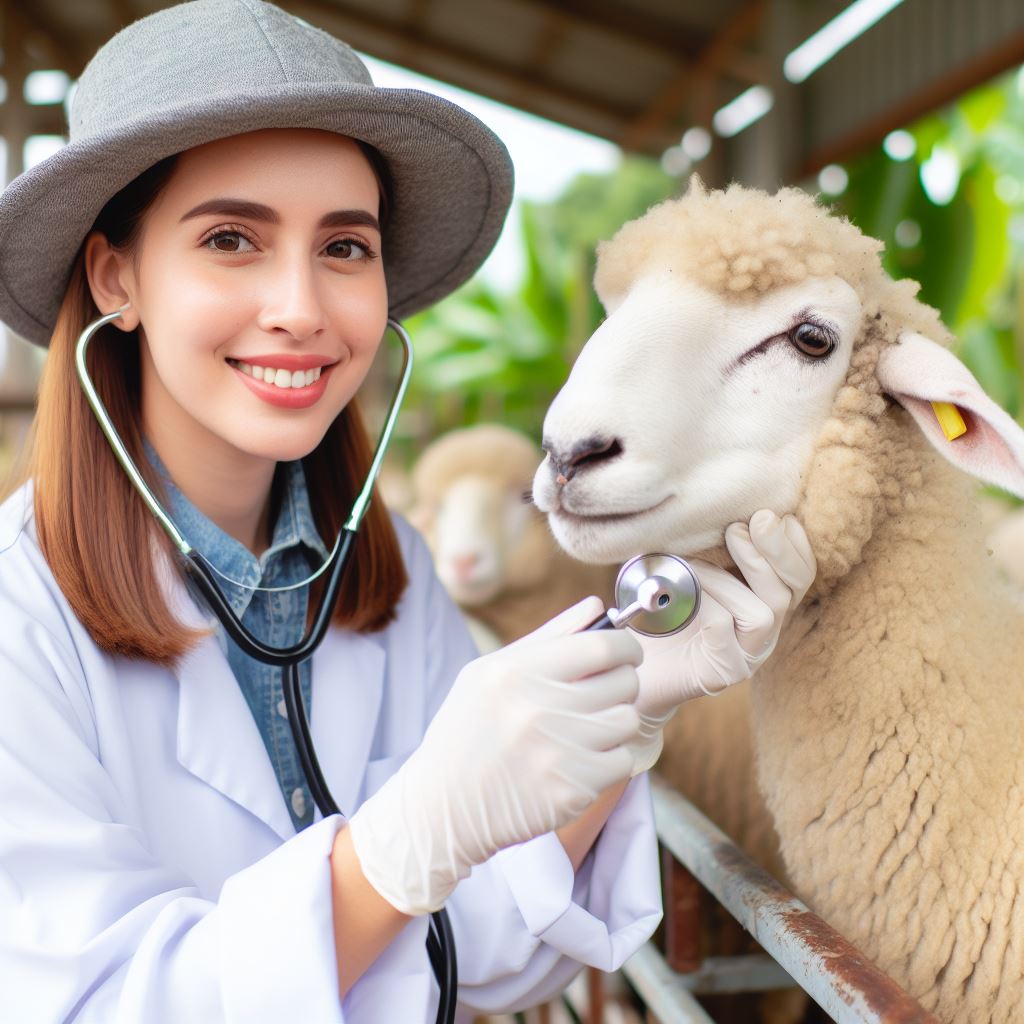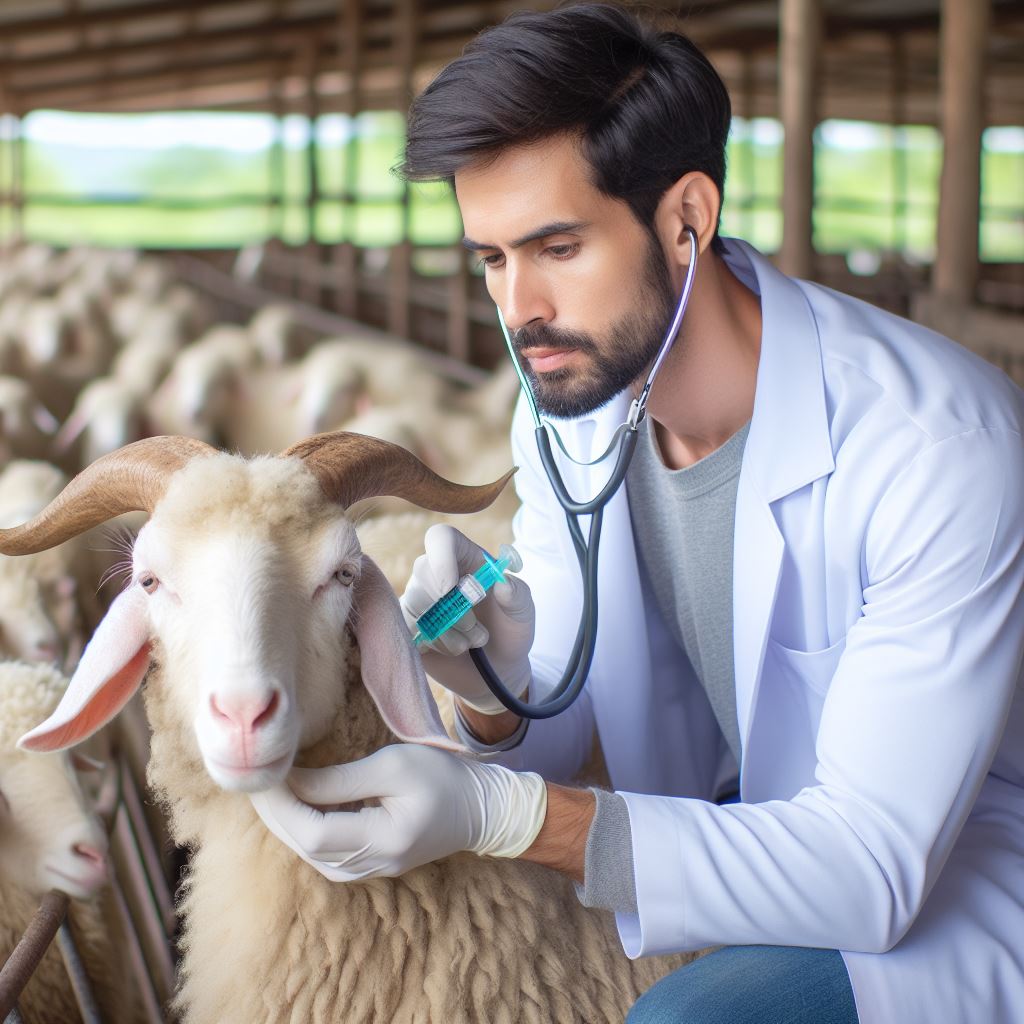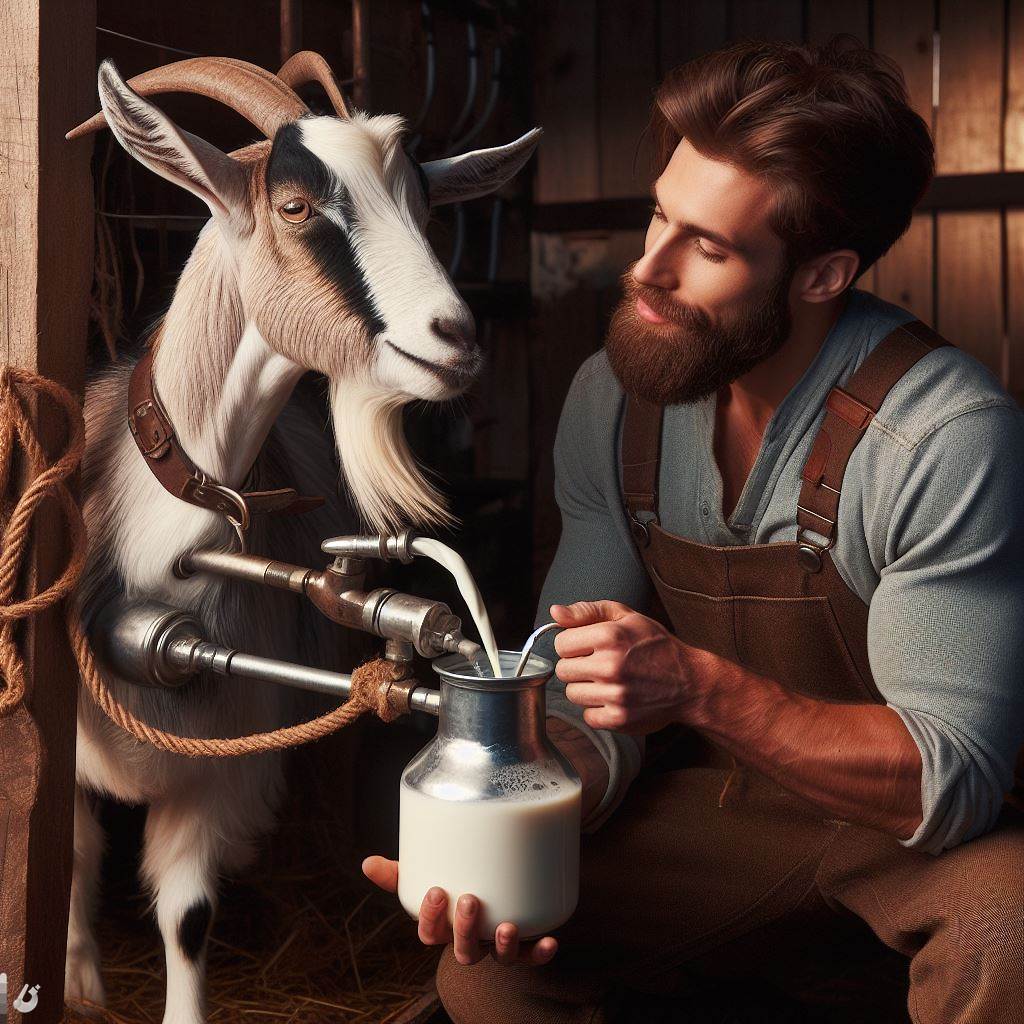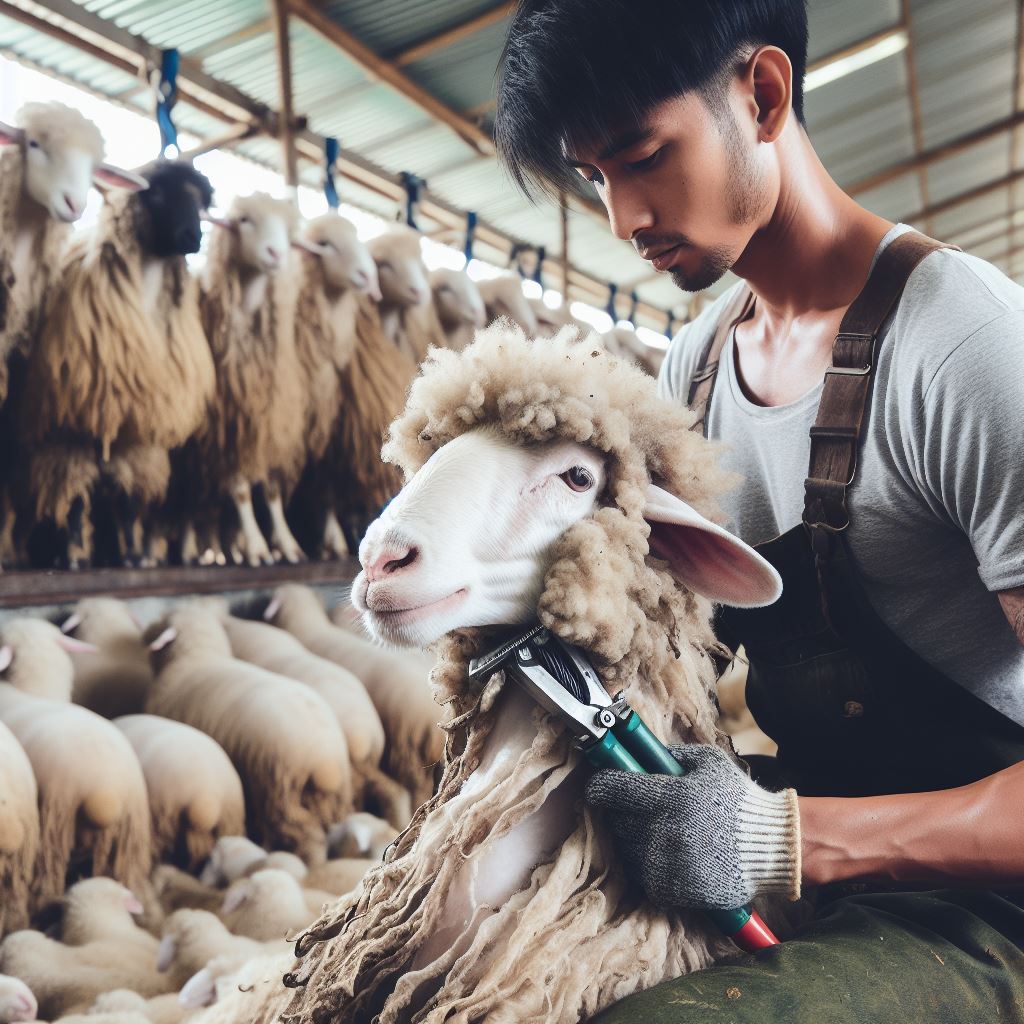Introduction
Proper fencing is essential for the safety and well-being of sheep and goats.
This blog chapter provides a brief overview of the importance of fencing solutions for these animals.
Importance of proper fencing for sheep and goats
Proper fencing plays a crucial role in ensuring the safety and well-being of sheep and goats.
Without adequate fencing, these animals can roam freely, potentially causing damage to property and themselves.
A sturdy and secure fence is necessary to contain them within designated areas and protect them from potential predators.
Brief overview of the topic
When it comes to fencing solutions for sheep and goats, there are several factors to consider.
The type of fencing material, such as wood, wire, or electric, depends on the specific needs of the animals and the environment.
The height of the fence should be sufficient to prevent any jumping or climbing attempts.
Additionally, the spacing between the fence posts and wires should be carefully planned to prevent the sheep and goats from getting caught or tangled in the fence.
It is important to regularly inspect and maintain the fence to ensure its integrity and make any necessary repairs promptly.
Another aspect to consider is the installation of gates to provide convenient access to the enclosed areas.
The gates should be properly secured to prevent any accidental escapes or unauthorized entry.
Overall, proper fencing is crucial for the safety, security, and management of sheep and goats.
It not only protects them from harm but also allows owners to efficiently control their movement and grazing areas.
By investing in the right fencing solutions and regular maintenance, owners can ensure the well-being of their animals and the success of their operations.
Transform Your Agribusiness
Unlock your farm's potential with expert advice tailored to your needs. Get actionable steps that drive real results.
Get StartedRead: Managing Reproduction in Sheep and Goats
Types of Fencing
Traditional Wire Fencing
Advantage
Traditional wire fencing is cost-effective and provides a sturdy barrier for containing sheep and goats.
Disadvantage
Wire fencing can cause injury if animals get entangled, and it may require regular maintenance.
Recommended Specification
For sheep and goats, use wire fencing with a height of at least 4 feet and a mesh size of 4×4 inches.
Electric Fencing
Advantage
Electric fencing is highly effective in keeping sheep and goats contained, as it delivers a mild shock when touched.
Disadvantage
Electric fencing requires a power source and regular maintenance to ensure proper functioning.
Recommended Specification
Use electric fencing with a height of 3 to 4 feet and ensure the energizer is powerful enough for the length of the fence.
Woven Wire Fencing
Advantage
Woven wire fencing provides excellent security as it has smaller mesh sizes to prevent animals from squeezing through.
Disadvantage
This type of fencing can be expensive and may require additional bracing to withstand the weight of animals.
Recommended Specification
Choose woven wire fencing with a height of 4 to 6 feet and a mesh size of 2×4 inches for better containment.
Portable Fencing
Advantage
Portable fencing allows flexibility in grazing areas and is easy to install and move.
Disadvantage
This type of fencing may not be as strong as permanent options and can be easily knocked over by determined animals.
Recommended Specification
For portable fencing, choose a height of at least 3 feet and use lightweight materials for easy transportation.
In essence, there are various types of fencing solutions available for sheep and goats.
Traditional wire fencing is cost-effective but requires maintenance, while electric fencing delivers a mild shock and needs a power source.
Woven wire fencing offers better security but can be expensive, and portable fencing allows flexibility but may not be as sturdy.
Carefully consider the advantages, disadvantages, and recommended specifications when selecting the most suitable fencing for your sheep and goats.
Read: Sheep Feeding 101: Nutrition for Flock Health
Factors to Consider when Choosing Fencing
When it comes to fencing solutions for sheep and goats, there are several important factors to consider.
These factors will help you choose the right fencing system that ensures the safety, cost-effectiveness, durability, and flexibility for your livestock.
Safety
One of the primary concerns for sheep and goats is their safety.
The fencing should prevent both the escape of the animals and the entry of predators.
Sheep and goats are known to be good jumpers, so consider using fences that are high enough to deter them from attempting to jump over.
Showcase Your Farming Business
Publish your professional farming services profile on our blog for a one-time fee of $200 and reach a dedicated audience of farmers and agribusiness owners.
Publish Your ProfileAdditionally, the fence should have small enough gaps to prevent entanglement or injuries.
Cost
The cost of the fencing system is an important consideration for any livestock owner.
There are two cost elements to consider: the initial investment and the maintenance costs.
Evaluate the different fencing options available and choose one that fits your budget while also addressing the specific needs of your sheep and goats.
Durability
Longevity should be considered when choosing a fencing type as it directly impacts the overall cost and effectiveness.
Evaluate the durability of different fencing materials such as wood, wire mesh, or electric fencing.
Additionally, take into account environmental factors like weather conditions and potential exposure to corrosive substances to ensure the fence will withstand the test of time.
Flexibility
Flexibility in fencing is crucial, especially if you have varying grazing areas or practice rotational grazing.
Look for fencing solutions that can be easily adapted to different grazing areas without extensive modifications.
This will allow you to efficiently manage your sheep and goats while maximizing the use of your land.
In general, choosing the right fencing system for sheep and goats involves considering factors such as safety, cost, durability, and flexibility.
By carefully evaluating these factors, you can select a fencing solution that meets the specific needs of your livestock while providing long-term security and convenience.
Remember to prioritize the safety and well-being of your animals when making your decision.
Read: Sheep Breeding 101: Best Genetic Practices
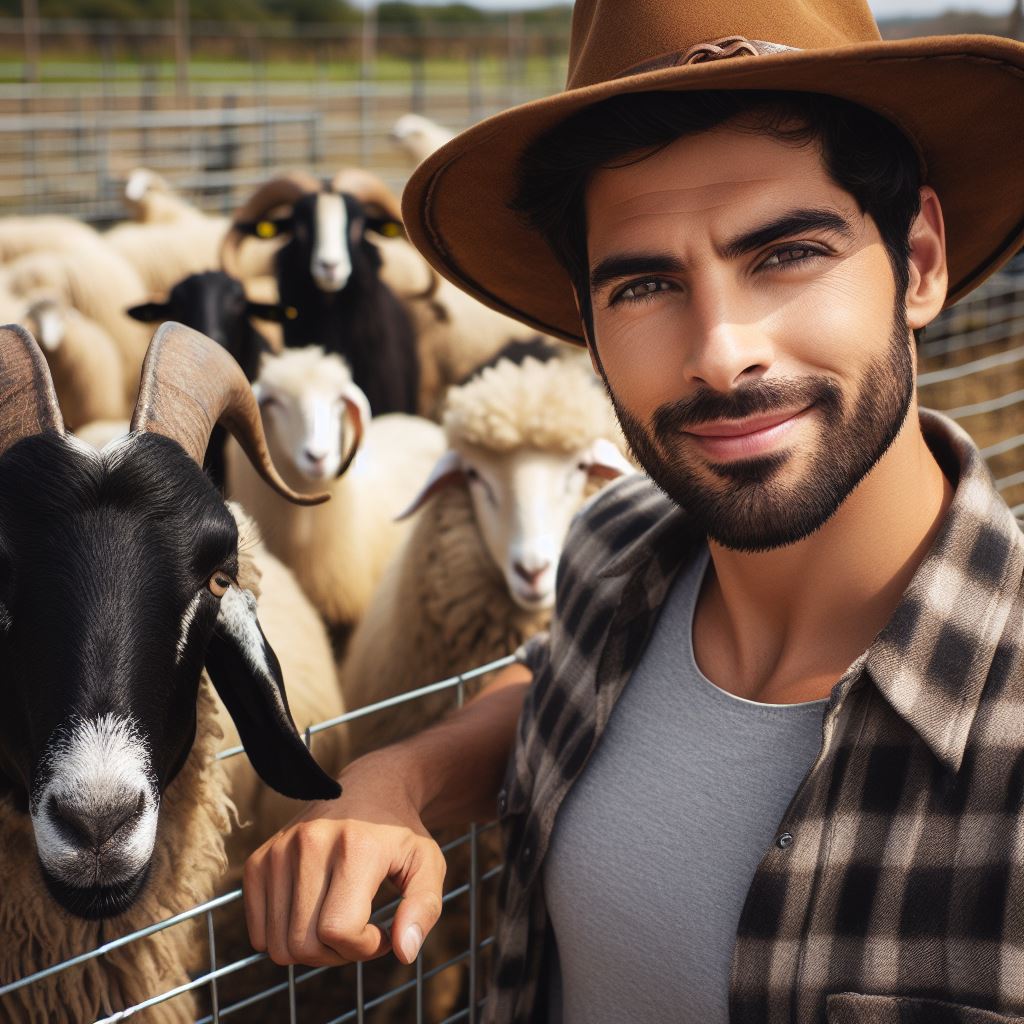
Uncover the Details: Best Forage Plants for Healthy Pastures
Installation and Maintenance Tips
Proper installation techniques
Proper installation of fencing is essential for ensuring the safety and containment of sheep and goats.
Here are a few important techniques to consider during installation.
Correct post spacing
The spacing between fence posts plays a crucial role in maintaining fence stability.
Depending on the terrain and expected pressure on the fence, suitable post spacing should be determined.
Generally, a spacing of 8 to 10 feet works well for most sheep and goat operations.
Proper tensioning
Once the fence is installed, it should be adequately tensioned to prevent sagging and potential breaches.
Tensioning methods such as using wire strainers or ratchet tensioning devices can help achieve optimal tension.
Regularly checking and adjusting tension ensures the fence remains effective.
Regular maintenance practices
Regular maintenance is necessary to prolong the lifespan and effectiveness of the sheep and goat fence.
By implementing the following practices, potential issues can be identified and resolved promptly.
Inspections
Regularly inspect the entire fence to identify any damage, wear, or weaknesses.
Look for loose wires, broken posts, or signs of animal activity that may compromise the fence’s integrity.
Inspections should be performed at least once a month or more frequently, depending on the level of potential threats.
Repairs and replacements
Once any issues or damages are detected, take immediate action to repair or replace the affected sections.
This may involve replacing a damaged wire, securing loose posts, or fixing any breaches or holes.
Regularly evaluate the fence’s condition to prevent small problems from escalating.
Additional measures for predator control
In addition to proper installation and maintenance, considering extra precautions for predator control is crucial for the safety of sheep and goats.
Electric wire placement
To deter predators, consider installing electric wires strategically.
The wires can be placed at different heights: close to the ground to deter digging predators and at chest height to discourage jumping or climbing predators.
The intermittent shocks can effectively discourage them from approaching the fence.
Use of guard animals
Deploying guard animals, such as dogs or llamas, can be a valuable addition to the fencing system.
These animals are known to actively protect livestock by warding off potential threats, including predators.
Proper training and supervision are essential to ensure the guard animals are effective and do not pose any harm to the livestock.
By following these installation and maintenance tips, farmers can establish a reliable and secure fencing system for their sheep and goats.
Regular monitoring and necessary repairs, along with additional predator control measures, will contribute to a safe and successful livestock operation.
Showcase Your Farming Business
Publish your professional farming services profile on our blog for a one-time fee of $200 and reach a dedicated audience of farmers and agribusiness owners.
Publish Your ProfileRead: Sheep & Goat Vaccination Schedules
Conclusion
Recap of key points
Throughout this chapter, we have discussed various fencing solutions for sheep and goats.
We explored their benefits and drawbacks, helping you make an informed decision.
Importance of selecting the right fencing solution for sheep and goats
Selecting the right fencing solution is crucial for the safety and well-being of your sheep and goats.
It ensures they stay within designated areas, protecting them from predators and preventing damage to neighboring properties.
Encouragement to further research and consult experts for their specific needs.
While we have provided valuable insights, it is essential for you to conduct further research and consult with fencing experts to tailor the best solution for your unique requirements.
Every farm and flock is different, so professional advice is invaluable.

